Kettering General Hospital: Dozens criticise care at children's ward
- Published
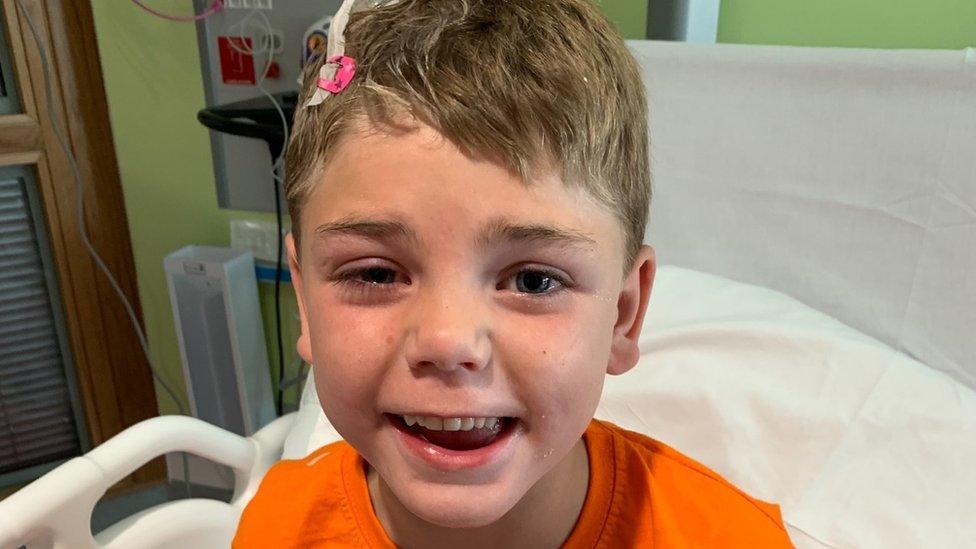
Isaac was admitted to KGH last year with a high temperature
Dozens of families have shared concerns about care on a children's ward fighting to stay open.
Thirty-eight parents contacted the BBC about the treatment of their children at Kettering General Hospital (KGH) in Northamptonshire.
They said staff ignored symptoms of serious illnesses, sometimes with fatal consequences.
The hospital has apologised to families who felt let down.
In December, the Care Quality Commission (CQC) took enforcement action "to ensure people were safe" on Skylark ward, a 26-bed children's unit and the paediatric emergency department.
Last month, a BBC East investigation revealed the services were at risk of closure.
Since then, there have been further claims of poor care, including of dismissive staff withholding pain relief or vital oxygen.
'I've got PTSD from my experience'
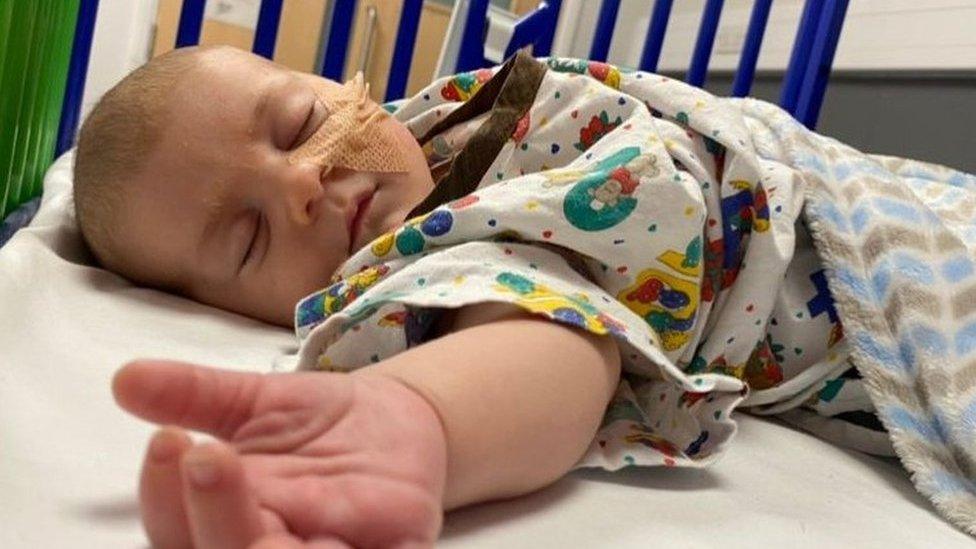
Reggie was dehydrated and not feeding
Reggie arrived at Skylark in 2021 when he was one month old.
He had not been feeding and his mother, who does not want to be named, said it took her 24 hours to syringe seven ounces of milk into him.
She said: "They told me nothing was wrong, that he was just a fussy feeder with mild reflux."
She and her baby were discharged without treatment but the next day Reggie was "lethargic, grey and looked horrendous".
His mother took him to a private consultant, who referred them to Stoke Mandeville Hospital.
He was immediately fitted with a tube to feed formula which he had to use for eight months.
"I've got PTSD from my experience at Skylark ward," Reggie's mother said.
"They just make you feel like you, as the parent, are the issue."
'I was very suspicious'
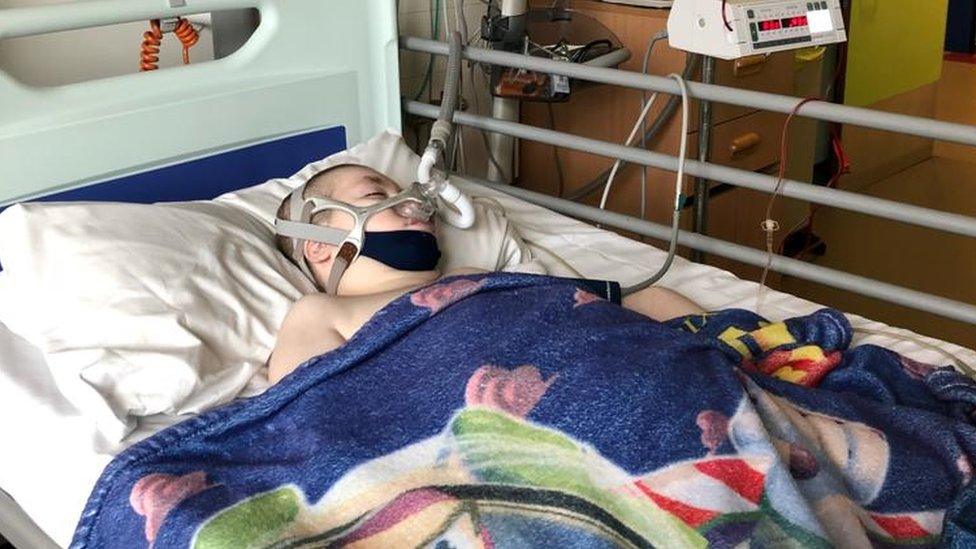
Owen received a blood transfusion in a side room on Skylark ward in 2018
Michelle and Daniel Morrison's son, Owen, was diagnosed with Menkes disease, a life-limiting copper deficiency, aged two.
His mother, from Corby, said KGH asked her to sign a do not resuscitate form but she always refused.
"He's entitled to life and shouldn't be denied life because of his diagnosis," she said.
In 2010, aged four, Owen was admitted after suffering a seizure.
Mrs Morrison, 43, left him briefly and, when she returned, said she was told he had been placed on an end-of-life pathway and would not survive the night.
"I was very suspicious; he'd gone from his happy, normal self to being unresponsive," she said.
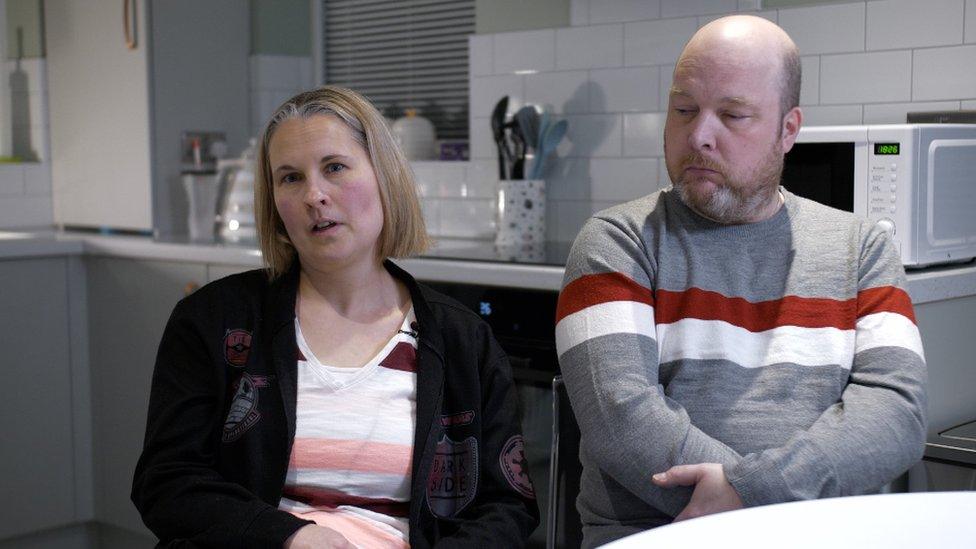
Michelle and Daniel Morrison's son, Owen, was diagnosed with Menkes disease
She insisted her son should be transferred to Leicester Royal Infirmary (LRI), where he recovered quickly.
Then in 2018, Mrs Morrison found blood in Owen's stools and said despite being told by staff not to come to Skylark, she brought him in anyway.
He was given a chest x-ray and discharged after four days with some reflux medication.
Two weeks later he deteriorated quickly and upon arriving at KGH, suffered three cardiac arrests, before being moved to LRI where he died.
A review by the Leicester hospital heard he probably died as a result of a perforated bowel linked to an untreated gastric bleed.
"I do, hand on heart, think they could have done more - instead of discharging Owen, they could have done an ultrasound or some kind of investigative work," his mother said.
'Like trial and error'
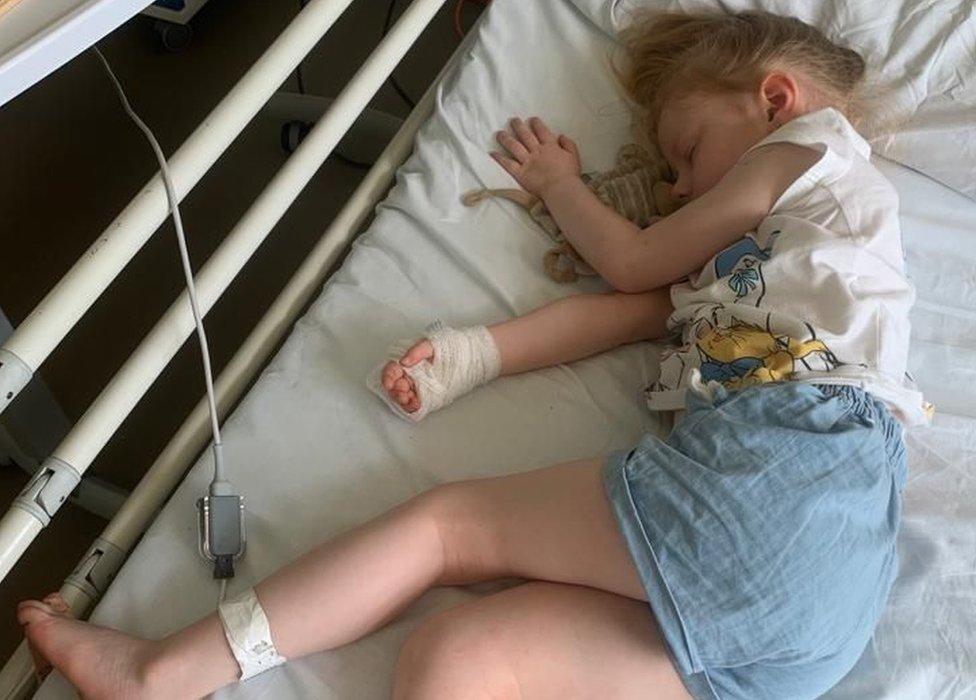
Georgie was admitted to Skylark ward suffering 80 seizures a day
For the first three years of her life, Georgie's epilepsy was easily managed with medication but after a series of seizures in May 2020 her parents took her to KGH.
Her father, James Smith, of Raunds, said "nobody seemed to know how to help" and Georgie was discharged while still having up to 80 fits a day.
"We pleaded with them that she wasn't ready to leave, it was obvious," he said. "As soon as we got home, she was fitting again and all night long."
The following day Georgie was back on Skylark and Mr Smith said during the next week doctors tried a variety of drugs without success.
"It was like she was being used as a guinea pig, like trial and error. They gave her this drug that was horrific and it was traumatising her - she was like a baby in a toddler's body," the 36-year-old said.
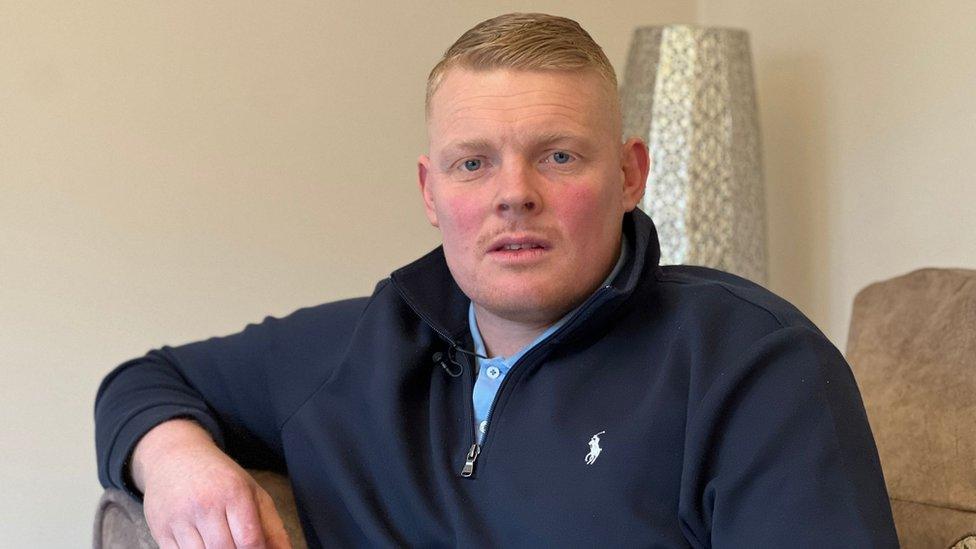
James Smith has been told his daughter will have epilepsy for the rest of her life
Georgie was eventually transferred to Oxford Children's Hospital, where her father said doctors quickly brought the fits under control.
He has since been told she will have epilepsy for the rest of her life.
"Was that caused by dragging their heels at Kettering and not being moved over to Oxford for seven or eight days? I honestly do wonder," Mr Smith said.
'I was imagining my child's funeral'
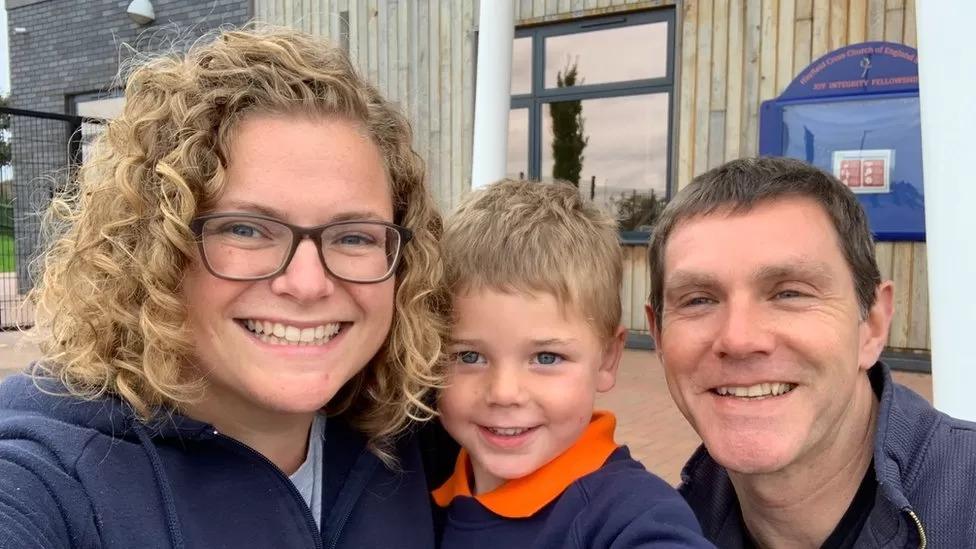
Isaac's life expectancy is between six and 12 but may be longer with treatment
Aimee Tilley's six-year-old son Isaac has the life-limiting condition CLN2 Batten Disease - one of the symptoms of which is childhood dementia.
His life expectancy is between six and 12 but may be longer with treatment.
In July, Isaac went to KGH's paediatric emergency department as he was lethargic and had a very high temperature.
Ms Tilley said a doctor on Skylark said her son had a low count of a white blood cell type and that one of the conditions they were considering was leukaemia.
That diagnosis "basically would mean death", said Ms Tilley, as he would not be able to have infusions.
"I was just traumatised. I was in turmoil. I was imagining my own child's funeral in my head literally from that minute."
The following morning another doctor came in and confirmed Isaac just had a chest infection.
"He was absolutely flabbergasted that we'd been told [about leukaemia]. But there was no record, nothing was written down, that he'd [the doctor] said this to us."
Isaac was discharged the following day, and the hospital later apologised to Ms Tilley, who did praise nursing staff on Skylark as "amazing".
KGH said it could not work out which doctor was responsible.
'I am very sorry'
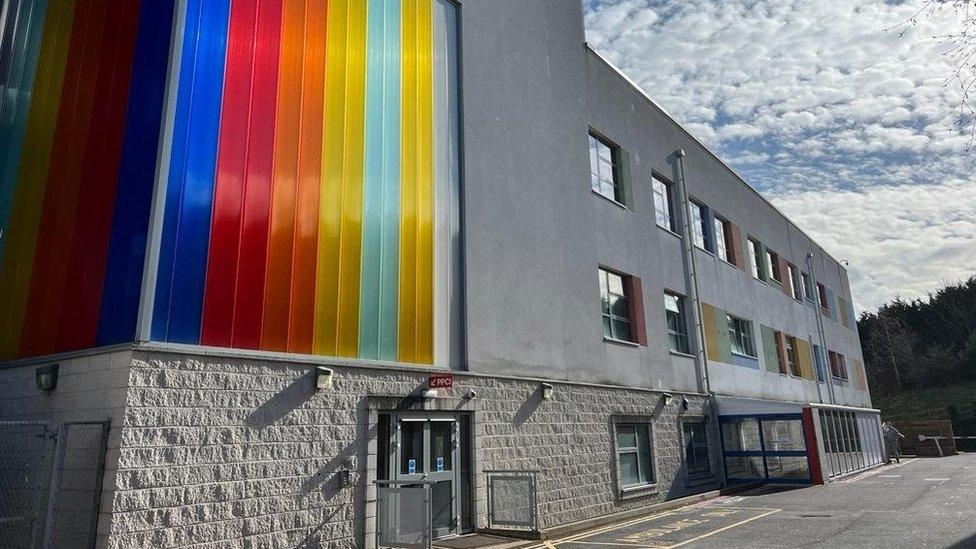
Skylark ward is a 26-bed children's unit
The hospital's director of nursing, Jayne Skippen, said: "To all children and families out there who feel they haven't received the high standards of care that we aim to deliver, I am very sorry.
"We know we need to improve some of our services, we have made some improvements already and we are committed to making our services the best they possibly can be.
"If there are any families out there who feel they haven't received the care and service that we would want to deliver, please do get in touch so we can hear about your experience and learn from that."

Do you have more information about this story?
You can reach Jon Ironmonger directly and securely through encrypted messaging app Signal on: +44 07890 348918 or by email at jon.ironmonger@bbc.co.uk